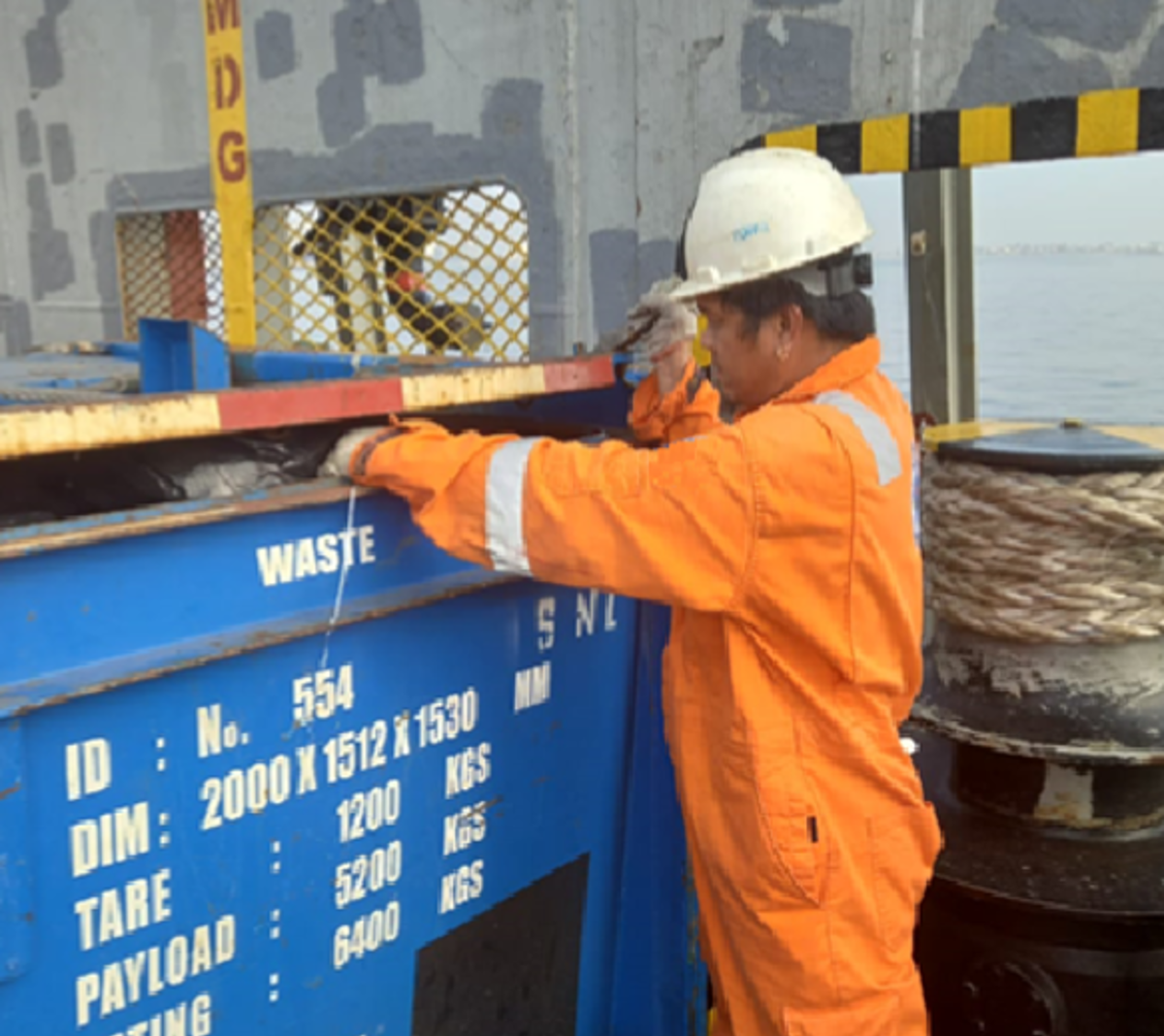Arm injury from metal skip cover
- Safety Flash
- Published on 14 August 2024
- Generated on 12 July 2025
- IMCA SF 16/24
- 2 minute read
Jump to:
Heavy cover of skip unexpectedly and accidentally closed, striking an individual’s arm, causing an injury.
Hand and finger injuries
Members continue to report hand and finger injuries. In last year’s safety statistics, 42% of LTIs reported by IMCA members involved injuries caused when workers got into the Line of Fire. What do we need to do to stop workers putting their hands and fingers in dangerous places? We all want to get the job done – but that one quick pause, whilst we stop to think, could make ALL the difference. Think:
- Is there a better way to do this?
- Could I use a tool instead?
- Should there be a guard? Should I have gloves on?
- Is this still too hot to touch? Is it live or is it still spinning?
- Think carefully before putting your hands where you can’t see them.
What happened?
A crew member was disposing of waste at a skip on the deck of a vessel, when the heavy cover of the skip unexpectedly and accidentally closed. The cover struck the individual’s arm, causing an injury. The crew member received first aid onboard and further attended a medical facility ashore. No bones were broken; the person was able to return to the vessel and continue with light duties.

Person puts waste in skip – re-enactment
What went wrong?
- The heavy metal skip cover was not adequately secured. ing before handling waste. The crew person did not secure the cover open when putting in the waste, and as a result the cover closed on his arm, causing injury.
- There was a lack of hazard appreciation – weight of skip cover and potential for injury was not considered.
Lessons
- Lifting the heavy cover or lid of a skip with one hand and putting waste in with the other, might save time because it is quick – but it is certainly worth avoiding a possible arm or wrist injury by securing the cover properly before putting your hand and arm “in the line of fire”.
- Check relevant closing and securing mechanisms to ensure they functioning properly to prevent accidental closing.
- Consider a “hazard hunt” to identify any similar latent conditions onboard.
Related Safety Flashes
-
IMCA SF 22/20
24 July 2020
-
-
IMCA SF 27/19
22 November 2019
-
-
IMCA SF 06/19
5 April 2019
-
IMCA Safety Flashes summarise key safety matters and incidents, allowing lessons to be more easily learnt for the benefit of the entire offshore industry.
The effectiveness of the IMCA Safety Flash system depends on the industry sharing information and so avoiding repeat incidents. Incidents are classified according to IOGP's Life Saving Rules.
All information is anonymised or sanitised, as appropriate, and warnings for graphic content included where possible.
IMCA makes every effort to ensure both the accuracy and reliability of the information shared, but is not be liable for any guidance and/or recommendation and/or statement herein contained.
The information contained in this document does not fulfil or replace any individual's or Member's legal, regulatory or other duties or obligations in respect of their operations. Individuals and Members remain solely responsible for the safe, lawful and proper conduct of their operations.
Share your safety incidents with IMCA online. Sign-up to receive Safety Flashes straight to your email.